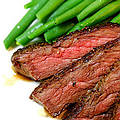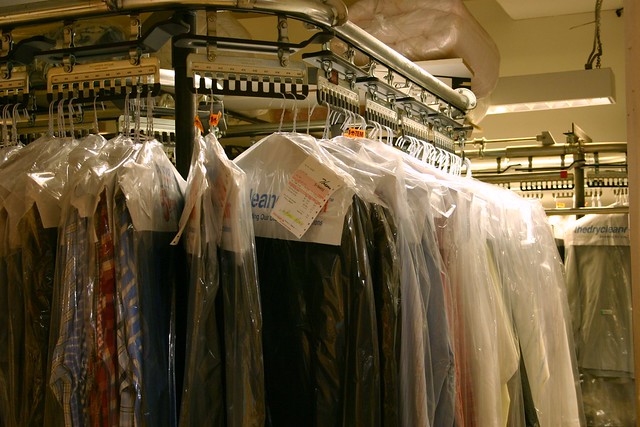 美國「國家科學研究院學報」(PNAS)日前發表一份報告指出,食用紅肉和奶製品會增加罹癌風險,這項研究並獲美國國家癌症研究所(NCI)支持。
美國「國家科學研究院學報」(PNAS)日前發表一份報告指出,食用紅肉和奶製品會增加罹癌風險,這項研究並獲美國國家癌症研究所(NCI)支持。
研究者是聖地牙哥加州大學醫學院一對醫生和科學家的夫妻檔組合,他們提出一套機制解釋這個現象,並實驗證明這個想法。
瓦爾基夫婦(Ajit Varki and Nissi Varki)認為,紅肉和奶製品在體內代謝過程中,會產生一種人體無法生成的分子,被組織吸收後會促進腫瘤生長。
這個人類無法自然合成的分子是N-羥基乙醯神經胺酸(Neu5Gc),屬於一種聚糖分子,會在攝取紅肉後進入人體組織中。
羊肉、豬肉和牛肉中都含有Neu5Gc,牛肉和牛脂肪中含量特高;蔬菜、水果、雞蛋、家禽和魚類中含量極低,甚或測不到。
一旦攝入含有Neu5Gc的食物,體內就會產生辨識Neu5Gc的抗體,瓦爾基在2003年在PNAS的研究報告便已提出,這個免疫反應可能會造成長期發炎反應。
瓦爾基夫婦的研究認為,這種發炎反應可能會促進腫瘤發育。瓦爾基表示:「我們先前發現,腫瘤組織比正常組織含有更多Neu5Gc,因此預測Neu5Gc應該有助於腫瘤發育。」
科學家已經知道,長期發炎可以刺激腫瘤發生,因此瓦爾基研究團隊便想探討,為什麼含Neu5Gc的腫瘤能在出現Neu5Gc抗體的環境中繼續發育?
聖地牙哥加州大學病理教授瓦爾基博士(Nissi Varki)說明:「我們的假說是,在有抗體的環境中,Neu5Gc會在腫瘤內累積,而這樣長期輕度發炎會促進腫瘤發育。」
這項實驗是利用無法生成Neu5Gc的特殊品種老鼠,來模擬食用紅肉前的人體環境,隨後研究人員將含有Neu5Gc的腫瘤細胞送入老鼠體內,並以Neu5Gc抗體注射半數老鼠。
Neu5Gc抗體會誘發老鼠體內的發炎反應,且腫瘤生長速度也比對照組快。而對照組的腫瘤較不具侵襲性。
其他團隊已經發表的相關研究顯示,非類固醇類消炎藥(NSAID)可以降低癌症風險,因此,瓦爾基團隊便以非類固醇消炎藥餵食實驗組老鼠。
這個藥物處理的確減低Neu5Gc抗體的作用,減低腫瘤尺寸。
Human consumption of red meat and milk products can contribute to the increased risk of cancerous tumors, according to a National Cancer Institute-backed study published this week in the Proceedings of the National Academy of Sciences.
A husband-and-wife team of physician-scientists at the University of California, San Diego School of Medicine, has newly demonstrated a mechanism for how this increase in risk occurs.
A non-human, cellular molecule absorbed into human tissues as a result of eating red meat and milk products could promote tumor growth, according to the team led by Ajit Varki, M.D. and his wife, Nissi Varki, M.D.
The molecule, called N-glycolylneuraminic acid (Neu5Gc), is a type of glycan, or sugar molecule, that humans do not naturally produce, but that can be incorporated into human tissues as a result of eating red meat.
Not produced in humans, Neu5Gc occurs naturally in lamb, pork and beef, with the highest levels found in beef and beef fat. Levels are very low or undetectable in fruits, vegetables, eggs, poultry and fish.
When foods containing Neu5Gc are eaten, the body then develops anti-Neu5Gc antibodies - an immune response that could potentially lead to chronic inflammation, as first suggested in a 2003 paper by Aji Varki also published in the Proceedings of the National Academy of Sciences.
The Varkis' research suggests that inflammation resulting from this molecule could promote tumor growth.
"We've shown that tumor tissues contain much more Neu5Gc than is usually found in normal human tissues," said Ajit Varki. "We therefore surmised that Neu5Gc must somehow benefit tumors."
It has been recognized by scientists for some time that chronic inflammation can actually stimulate cancer, he explained. So the researchers wondered if this was why tumors containing the non-human molecule grew even in the presence of Neu5Gc antibodies.
"The paradox of Neu5Gc accumulating in human tumors in the face of circulating antibodies suggested that a low-grade, chronic inflammation actually facilitated the tumor growth, so we set out to study that hypothesis," said Nissi Varki M.D., UCSD professor of pathology.
Using specially bred mice that lacked the Neu5Gc molecule - mimicking humans before the molecule is absorbed into the body through ingesting red meat - the researchers induced tumors containing Neu5Gc, and then administered anti-Neu5Gc antibodies to half of the mice.
In mice that were given antibodies, inflammation was induced, and the tumors grew faster.
In the control mice that were not treated with antibodies, the tumors were less aggressive.
Other scientists have previously shown that humans who take non-steroidal anti-inflammatory drugs have a reduced risk of cancer. So, the mice with cancerous tumors facilitated by anti-Neu5Gc antibodies were treated with an NSAID.
In these animals, the anti-inflammatory treatment blocked the effect of the Neu5Gc antibodies and the tumors were reduced in size.


